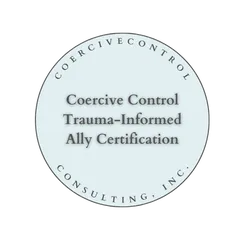Quick Contact
Please fill out the form below and our attorney will contact you.
Office Locations
Testimonials
Ratings & Reviews

- posted: Mar. 16, 2020
As featured in Gabrielle Hartley's Better Apart Blog Nothing makes parents more anxious than threats of any kind to our children’s health and well-being. The COVID-19 pandemic has created a heightened level of concern, on so many different levels, for parents. Communities are closing schools. Daycares are shutting down. Extracurricular activities are cancelled. Parent’s work schedules are in flux. Co-parenting in such uncertain times is not for the faint of heart. Parenting plans that worked a few shorts weeks ago may need tweaking. If you mediated your parenting plan, your agreement likely contains language stating that “a reasonable and flexible access schedule between both parties and the child serve the child’s best interests, and as such the parties intend the plan to provide a flexible framework which may be adjusted, upon mutual agreement, to meet specific needs and circumstances.” Co-parents who have a healthy co-parenting relationship likely are able to agree upon changes that make sense for the family during this uncertain time. But what if you can’t? What if the kids being home from school make it so the parenting plan you’ve had no longer works and you both have different ideas as to how it should change. For example,
- What if you don’t have child care and no ability to work from home?
- What if you both work from home and need uninterrupted time to complete your job assignments?
- What if you disagree as to how serious the situation is and one household follows one set of rules (social distancing, hand washing) and the other does not.
- What if the two households are in different communities with different responses to the pandemic or the households are at such a distance that the travel bans impact the parenting plan schedule?
- What happens if your child contracts the virus? What happens if you or your former spouse contacts the virus? What is the plan?
Now than more than ever, parents need to have meaningful, respectful co-parenting communication focused solely on the best interests of their children. An evaluation of the potential issues this pandemic may raise for your family is necessary. Better to be proactive and have discussion now so that your expectations and those of co-parent are aligned. What steps should we take? Your parenting plan may have a built in framework for working towards amicable resolution of any modifications, such as an agreement that you will meet in person, and attempt to reach a decision that is in the best interests of the child or children. Some agreements further provide that you will consider the wishes of the child (considering the age and maturity of the child) and then, if still not in agreement, jointly consult with a professional in the area of disagreement and consider his or her recommendation. (Note, I am not suggesting children of any age should have any say in this regard, but your Agreement may have such a provision for disputes in general). Usually most agreements will provide that these steps will be taken prior to either party seeking judicial intervention. Many parenting plans even state that in the event the parties cannot agree on any parenting issue, after face to face discussion for the purpose of trying to resolve it themselves, the parties agree that upon either party’s request, they shall meet with a neutral mediator, mental health professional or co-parenting counselor and attend at least one or two sessions with such professional prior to any motion seeking judicial intervention is filed. There is usually a provision regarding how such sessions shall be paid for. Make sure you go back to your agreement to see what you and your former spouse agreed upon and follow that framework. Tips for Healthy Communication:
- Lessen your reactivity/triggering! Although you may have tried this in the past and feel like you may have failed, there is no better time than now to re-commit to non-adversarial communication with your co-parent. Your immune system needs you to calm your central nervous system, as elevated stress levels cause inflammation, which lowers immunity.
- Consider sharing positive pictures with your co-parent of your child out in nature, especially as we are getting new signs of spring every day. If this isn’t something that you can manage, encourage your child to share pics more regularly with their co-parent. Receiving pics when your child is with their co-parent can lessen feelings of isolation during this social distancing time.
- Don’t contact your co-parent when you are feeling overly stressed. Right now, most of us have stress, no one is immune to this not affecting them in some way. Make it a policy to try and communicate with your co-parent after you have used your self-calming tools. For a quick boost before contacting your co-parent, try CALM or Headspace Apps, these mindfulness Apps are a great way to lower heart rate and blood pressure which is essential in lowering stress. Examples of other mindfulness tools include getting out in nature, music, listening to comedy, journaling, etc. Don’t forget about food and alcohol choices during this time, lessening or skipping sugar and alcohol at this time is probably for the best, as our microbiome in our gut is considered our “second brain”.
- For those co-parents who attend individual therapy, keep those sessions during this time as therapists are switching to a video format for a few weeks. If it’s tricky to find a quiet place in the house to talk, you can do it in your car in the driveway, and sessions can also be shorter to accommodate. If you don’t have a therapist, this is a perfect time to find one and get started.
- Talk to Your Support System- explain to your friend and family that you are putting your best food forward with your co-parent and that you will do your part to keep things positive. Committing in this way gives them the cue not to bring up negative things about your co-parent which can re-trigger you.
- “Fake It till You Make it”-we all know this saying, let’s adjust it to, “Keep Trying as An Act of Self-Compassion”. Self-compassion is reducing your own suffering. Some of you may have a co-parent that at every turn is adversarial with you, listen to the following video as often as you need to in order to prepare yourself to deal with something you can’t change, you can only change how you react to it.
- BIFF: Remember to keep communication BIFF, Brief, Informative, Friendly and Firm. Respond, don’t react.
- Co-parenting Apps: Particularly in situations where communication is difficult, apps such as FAYR will help you create a better co-parenting experience by providing tools for: constructive communication, argument diffusion, and emotional support.
- Keep re-centering. Ask yourself, what are you grateful for during this time? This is a question that we would like you to answer throughout each day because it will bring you a measure of peace and flood your body with positive and stabilizing hormones.
If you are still unable to come to an agreement together, what are your options? Given the pandemic, you will likely not have access to the Court system. In Connecticut, the courts will schedule and hear only those matters identified as “Priority 1 Business Functions.” Very few matters fall into this category, and mostly all have to do with emergency matters. Private Mediation. If you cannot come to an agreement, consider mediating your dispute with a private mediator. In mediation, the mediator facilitates the negotiations of the disputing parties and tries to help them settle their dispute. The responsibility is on the parties, and not the mediator, to make the decisions. Often in parenting situations, co-parenting counselors can help enhance your co-parenting relationship to reduce the stress for both you and your children. Private Arbitration. You can also explore private arbitration in which you and your former spouse appoint an unbiased arbitrator to make a binding decision after hearing from both sides. Proceedings can range from paper submissions to a full trial. Parties should consider the extent to which the rules of evidence will apply, the type and extent of witness testimony, upper limits on the length of the hearings, whether hearings will be in person or over electronic means, and more. Your children need to see parents working together, having respectful communication and ensuring they are safe. You can do this, because you have to do this!
A special thank you to Kelley Hopkins Alvarez, LPC for her contributions of TIPS FOR HEALTHY COMMUNICATION!













